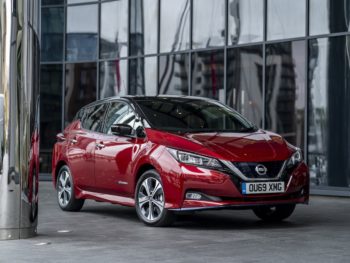UK businesses plan £12bn EV drive but Plug-in Grants remain critical
Businesses are set to invest £12bn in electric vehicles over the next two years but say that grant funding and tax incentives remain vital to encourage widespread fleet electrification.

Businesses are set to invest £12bn in EVs over the next two years but the upfront cost of vehicle purchase is still seen as a barrier to adoption
Research carried out by Centrica Business Solutions of UK firms found that investment in EVs is set to increase by almost half (46%) over the next two years, up from the £8.2bn spent in the two years since the Government reiterated a ban on the sale of ‘conventional’ new petrol and diesel cars and vans from 2040.
UK businesses plan to spend an average of 4.5% of their annual turnover on EV adoption over the next two years according to the data, with more than a quarter (27%) of respondents expecting at least a fifth of the vehicles within their fleet to be electric by 2022.
Of those businesses that had already begun electrifying their fleets, the key drivers cited were pressure caused by government emissions targets (37%), wanting to operate freely in ultra-low emissions zones (37%) and the lower maintenance costs of EVs compared to petrol- and diesel-fuelled vehicles (33%).
However, while many in the industry believe the charging infrastructure is the main barrier to EV take-up, the research actually indicates the upfront cost of vehicle purchase is the biggest obstacle – cited by 44% of all businesses polled as their chief concern. This was followed by range anxiety (42%) and the increased energy costs caused by charging vehicles on company premises (37%). The cost of staff training to operate EVs was also viewed as a drawback to adoption.
Providing further evidence of businesses’ cost concerns over EVs, two-thirds (68%) of respondents suggested tax subsidies and a continuation of grants for electric vehicles (68%) as the measures they would most like to see the Government take or extend. This was significantly more than the 48% that thought further investment in public charging infrastructure should be the main priority – and brings added weight to calls for the Plug-in Grants to be extended as concerns continue to mount over their future; an announcement is expected in this week’s Budget.
The research also showed nearly half (48%) of the businesses surveyed said they planned to install on-site charging points over the next two years. Yet, a significant proportion (28%) hadn’t yet invested in energy technology, such as solar panels, capable of generating the electricity needed for vehicle charging.
Alan Barlow, director UK & Ireland at Centrica Business Solutions, said: “There is clear recognition among UK businesses of the increasingly important operational role electric vehicles can play for them in meeting their decarbonisation goals. But concern is still widespread over how to finance this significant change, particularly for those with large petrol and diesel fleets.
“Vehicle charging is inevitably going to increase the amount of electricity businesses consume. It’s our view that onsite generation from solar panels, allied with battery storage and smart charging are the right option for many businesses to enable them to provide charging facilities without facing large increases to power costs and upgrades to their incoming supply.”
Fleets can also download a Centrica Business Solutions has launched a white paper on the switch to electric vehicles.

